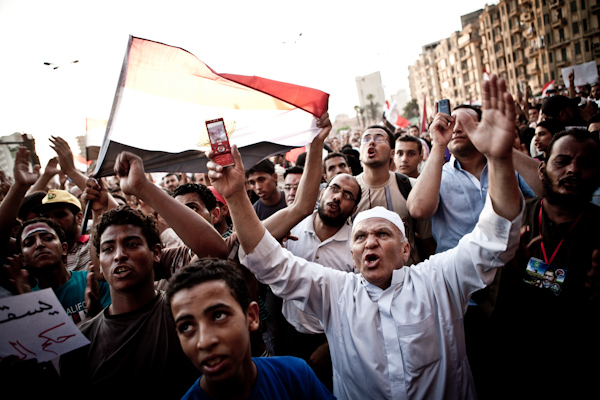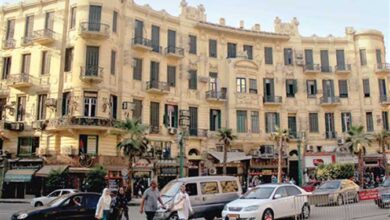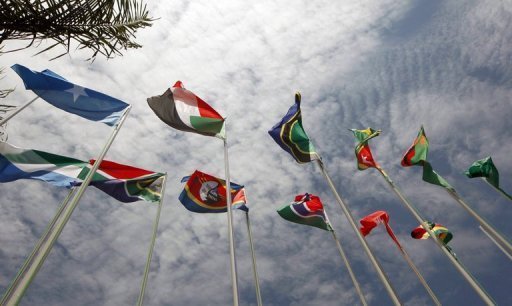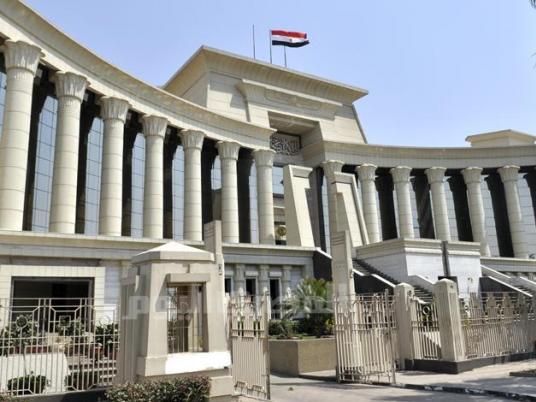
As lawmakers, the Muslim Brotherhood have faced the judiciary’s wrath on several occasions, for proposing a bill to revamp the judicial system, and again for questioning the integrity of judges on the heels of some of the most controversial verdicts that have ever impacted politics. But perhaps their greatest battle has been the recent Supreme Constitutional Court (SCC) ruling that disbanded Parliament.
In the midst of this feud, the Brotherhood and its political wing, the Freedom and Justice Party, have also immersed themselves into a different battle with another, no less significant force: privately owned media. The group’s daily newspaper recently coined the term, “black media”, for the private channels and newspapers that regularly criticize the Brotherhood’s performance. It accused these media outlets of implementing the agenda of corrupt businessmen, known for ties with the old regime.
Akram Ismail, a columnist and youth leader in the leftist Popular Alliance Party, says the Brothers may not win these battles because their adversaries “are very powerful.”
“The Brothers are fighting influential groups,” he said, listing the bureaucracy, the businessmen, the upper-middle class, intelligence officials and the security apparatus.
“It is a large social mix,” he said. “The Supreme Council of the Armed Forces stands as the political representative of this network.
“These forces might not be able to form a political party and win elections, but they can invest in the media, the military council and the judiciary to team up against the Brotherhood,” said Ismail, addressing what is commonly referred to as “the deep state.”
Amid these animosities, President Mohamed Morsy made the bold move of reinstating Parliament on Sunday, defying the SCC ruling and stripping the generals of the legislative powers they had reclaimed after the dissolution of Parliament.
Morsy has deepened the rift between his group and judges, and in the meantime positioned the Brothers once again on a collision course, at a point when no influential media stands by his side. This raises questions about the group’s chances of actually emerging victorious from such a three-way fight: with the magistrates, the military junta and the media.
On Tuesday, the SCC handed down a verdict halting the reinstatement of Parliament. Earlier, the court had also defied the president with a statement reiterating that its rulings were irreversible and binding. In the meantime, the Judges Club gave Morsy a 36-hour ultimatum to go back on his decision and apologize to the people and judges.
While the FJP and Salafis celebrated Morsy’s decree, secular parties said their lawmakers would not attend the parliamentary session held on Tuesday, insisting on abiding by the court verdict. Meanwhile, SCAF issued a vague statement on Monday stressing the importance of respecting the law and court rulings. The generals insisted that they will “always side with legitimacy, constitution and law for the sake of the people’s interest.”
Some said the statement bore an implicit threat that the generals could carry out a coup against the president. However, Ismail ruled out any overt confrontation with Morsy.
“SCAF does not want to engage in a direct battle,” said Ismail. “It will use certain segments within the state, such as the judiciary, some media outlets and certain political forces, to run the fight on civil ground.”
Morsy’s presidential team said the president acted within his jurisdiction and did not violate the constitution. Meanwhile, FJP leaders said the court had no right to dissolve Parliament, saying it only had the right to rule on the constitutionality of parliamentary elections law, and could not dictate any further decisions.
“Morsy’s decision to reinstate Parliament does not just benefit the Brothers and the FJP,” said Ahmed Abdel Gawad, a youth leader in the National Front, a loose entity of several political parties and youth groups led by the FJP. “It is a decision that meets the demands of Tahrir Square and a lot of revolutionary forces.”
When the court handed its verdict down in mid-June, many interpreted it as a sign that a soft coup might be under way. Experts contended that the ruling was politically motivated, in the context of a SCAF-Islamist power struggle.
“Unfortunately, the judiciary has become politicized and this is very dangerous,” Abdel Gawad said.
Speaking to Egypt Independent last month, an FJP lawmaker said the court might have dissolved Parliament in reprisal for a Salafi parliamentarian’s bill that sought to revamp the court.
“I believe Morsy has begun to consolidate his power gradually and grab more power from the military,” said Khalil al-Anani, a political scientist at Durham University, who supports the president’s decision.
Anani downplayed the impact of this move on the generals, saying he disagreed with those who say there is a conflict between them and the Brotherhood.
“The main obsession of SCAF is to maintain their social and economic privileges, and issues pertaining to national security,” he added, ruling out that the military would be antagonized by Morsy’s usurping of their legislative powers.
Some skeptics have argued that the move must have been coordinated with the generals behind closed doors, as part of alleged negotiations about power-sharing deals between the two parties.
Others suggested that Morsy’s decree could be an arm-twisting move, aimed at improving the Brothers’ bargaining position vis-a-vis SCAF over the process of writing the constitution.
An Islamist-led Constituent Assembly is currently drafting the post-Hosni Mubarak constitution. However, the fate of this assembly, which was elected by Parliament in June, hinges on a court verdict expected soon.
The Administrative Court is set to rule over appeals contesting the assembly’s predominately Islamist makeup. If the court disbands it, the generals must appoint a new one, according to the terms of the supplement to the Constitutional Declaration, issued by SCAF last month. Morsy’s reinstatement of Parliament could be aimed at preventing the generals from having the upper hand in the matter.
In a TV interview on Monday, Hassan al-Brince said the reinstated Parliament could elect a new constituent assembly in case the incumbent is disbanded. However, Ismail expects the move to miss the target.
“It is impossible to reinstate Parliament, unless you succeed in dismantling the Supreme Constitutional Court and SCAF first,” said Ismail.
“The [court] will keep ruling that all the laws coming out of Parliament are unconstitutional. You work on laws and I appeal them and the court says they are unconstitutional,” he said.
Despite the Brothers’ seemingly weak position in this legal mayhem, Abdel Gawad argued that their “popular support base” could help them win their battles against the judiciary, the media and the military.
The legitimacy that the Brotherhood derives from the ballot box, coupled with its ability to mobilize tens of thousands of its members in street protests, stands as one of the group’s major assets in the ongoing political struggle. However, Ismail said he believes such an asset might not be enough to vanquish strong opponents.
“They are antagonizing everyone and saying that they are a popular group. What does that mean? To what extent would people support you? How long will the people rally behind you in draining street protests?” he said.
For many pundits, the prolonging of the power struggles and political turmoil could harm the popularity of the newly elected president and his group in the eyes of many segments of the Egyptian electorate longing for stability. It remains to be seen how long the Brotherhood can maintain that popularity as it pursues its struggle for power.
This piece was originally published in Egypt Independent's weekly print edition.



